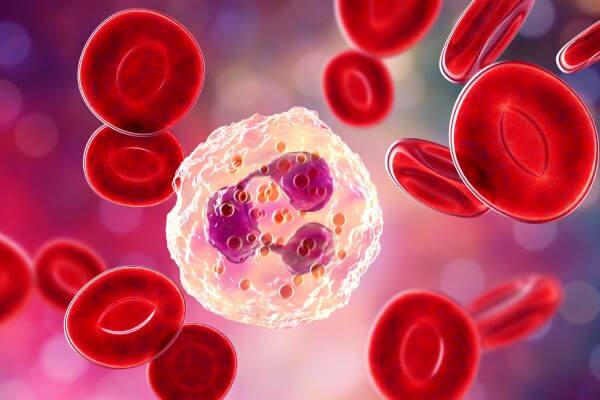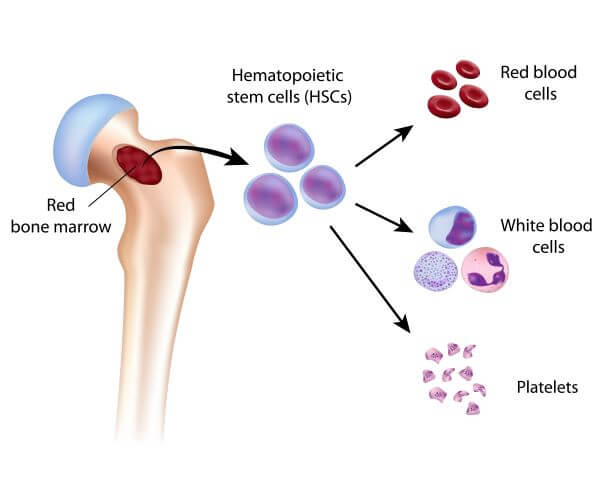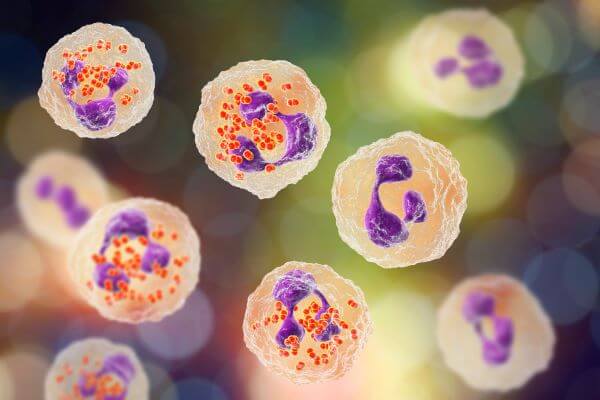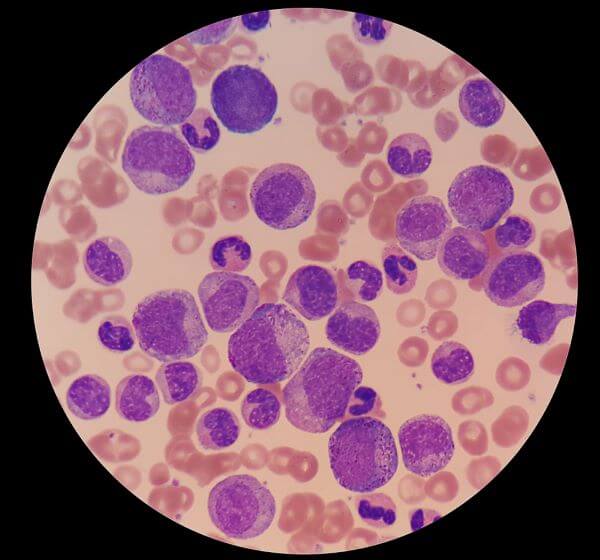Neutrophils are the most abundant type of white blood cell in humans, and they play an important role in innate immunity. Their primary function is to prevent infections in the body by engulfing and destroying invading pathogens. Neutrophils belong to a group of white blood cells called granulocytes and are produced from stem cells in the bone marrow.
In healthy individuals, neutrophils account for 55-70% of circulating white blood cells. Unusually high levels of neutrophils in the blood is often a sign of infection or inflammation, though it may also be a sign of other underlying health problems. A low neutrophil count is often caused by the use of certain medications and can impair a person’s ability to fight off infections. Low neutrophil levels can also be an indication of a more serious health condition.

What are Neutrophils?
Neutrophils the most abundant type of white blood cell in the human body. Along with eosinophils and basophils, they belong to a group called the granulocytes. Granulocytes are a type of white blood cell that has granules (tiny particles) in their cytoplasm.
Neutrophils account for approximately 55-70% of all white blood cells and play a key role in immune function. Like most other blood cells, they are produced from stem cells in the bone marrow before being released into the bloodstream. Once released, neutrophils only survive in the blood for a few hours before being destroyed in the spleen or liver. For this reason, the bone marrow holds large numbers of neutrophils in reserve, which can be rapidly mobilized if they are needed.

What is the Function of Neutrophils?
Neutrophils are key players in innate immune function. As the most abundant white blood cells in circulation, they are the ‘first responders’ of the immune system and are rapidly recruited to sites of injuries and infections. Their primary function is to prevent infections by attacking and killing disease-causing microbes.
Neutrophils and Infection
Infections are caused when pathogens (disease-causing microorganisms) enter the body. When this happens, the number of neutrophils in the bloodstream increases, and neutrophils rush to the site of infection. Once there, they destroy pathogens via phagocytosis. During this process, neutrophils engulf the invading pathogens and destroy them using their granules, which are tiny packets of digestive enzymes. In doing so, they clear pathogens from the body and help to resolve infections.

Neutrophils and Inflammation
Inflammation in the body is caused by tissue damage and is usually a result of infection or injury. Neutrophils play a key role in the inflammatory response and are the first white blood cells to arrive at the site of tissue damage. They rapidly enter the injured tissue from the bloodstream where their primary function is to prevent wound infection by killing off invading microbes. If a wound becomes infected, a number of the neutrophils involved in fighting the pathogens will die and accumulate in the infected area. These dead cells are a major constituent of pus.

What is an Absolute Neutrophil Count?
The absolution neutrophil count (ANC) is a measure of the number of neutrophils in a person’s blood. An ANC test may be used to check for signs of infection, inflammation, leukemia, or other health conditions. An ANC test can also be used to assess a person’s risk of infection, as neutrophils are the most important type of pathogen-fighting white blood cells.

Neutrophilia vs. Neutropenia
Neutrophilia means a person has a high percentage of neutrophils in their blood, whereas neutropenia means they have low neutrophil levels.
Neutrophilia is a sign of infection or inflammation, as these cause an increase in blood neutrophil levels. This may be caused by several underlying health conditions and lifestyle factors, such as:
- Bacterial infection
- Inflammation
- Injury
- Surgery
- Cigarette smoking
- Elevated stress levels
- Excessive exercise
- Use of steroids
- Heart attack
- Chronic myeloid leukemia
People with neutropenia (low neutrophil levels) are more likely to develop bacterial infections than those with normal neutrophil levels. In most cases, a low neutrophil count is caused by the use of certain medications (such as chemotherapy drugs). However, neutropenia can also be a result of other underlying illnesses or factors including:
- Bone marrow failure
- Suppressed immune system
- Aplastic anemia
- Febrile neutropenia
- Hepatitis A, B, or C
- HIV or AIDS
- Sepsis
- Autoimmune disorders (such as rheumatoid arthritis)
- Leukemia
- Myelodysplastic syndromes
